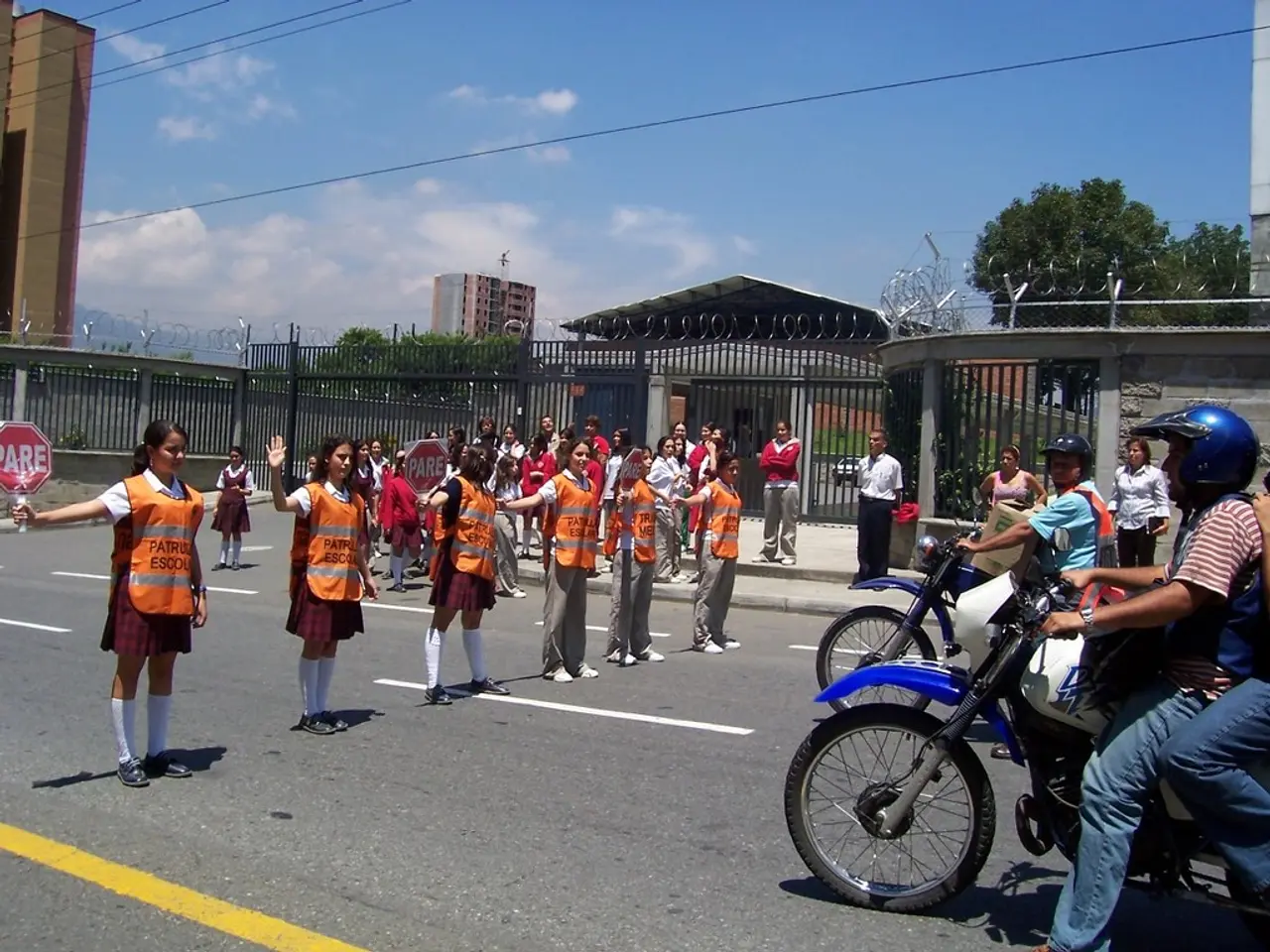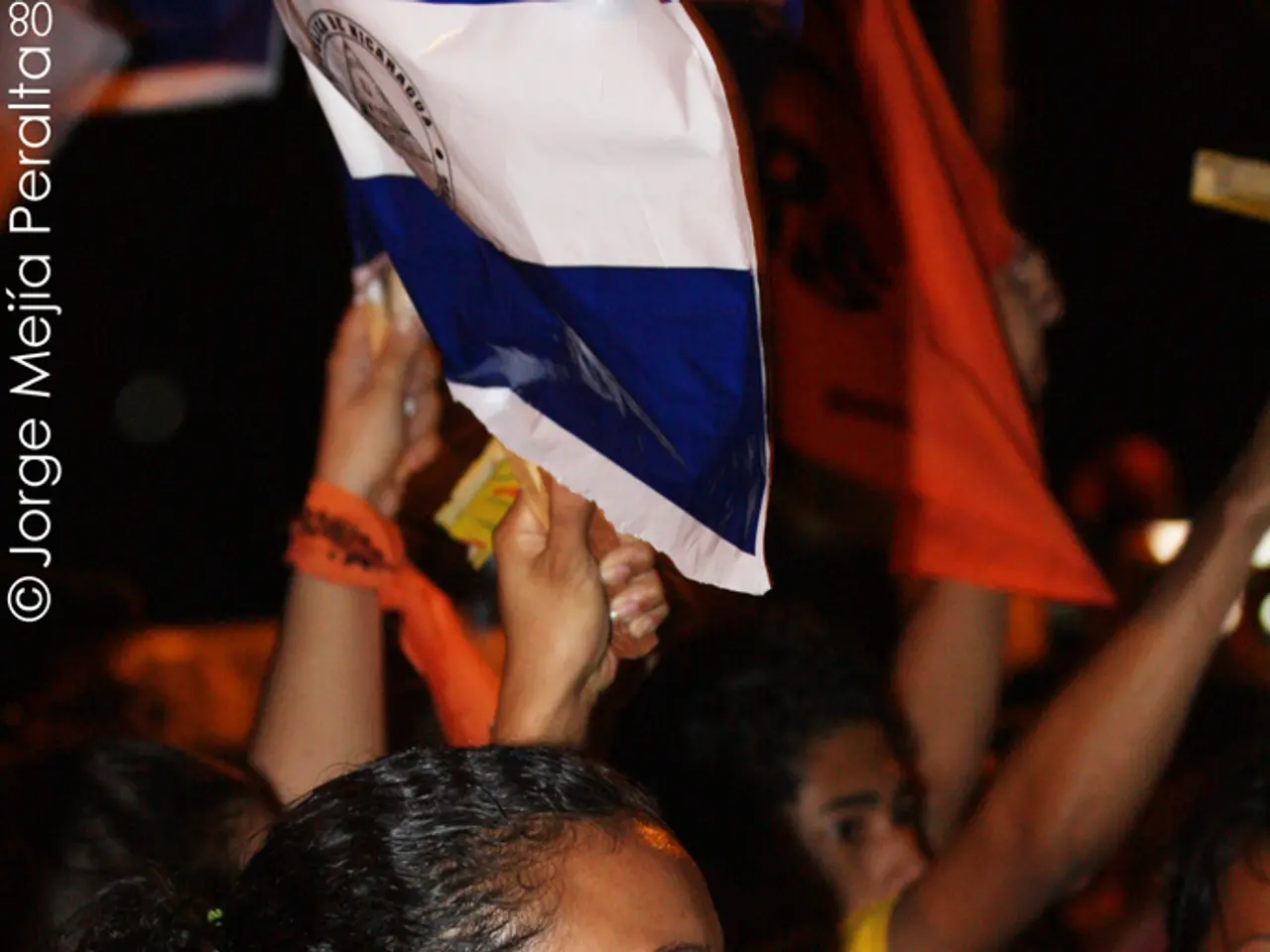Opponent from secularist faction in Turkey objects to elimination of Arabic inscriptions in urban areas
CHP's Opinion on Arabic Banners:
The leader of Turkey's main opposition, the Republican People's Party (CHP), Ozgur Ozel, has expressed his views on Arabic banners and signs in municipalities under CHP control. In a recent meeting, Ozel advised his colleagues to avoid targeting only Arabic to avoid stirring controversy concerning other foreign languages, highlighting the sensitivity of the issue for devout Muslims in the country. However, Ozel explained that removing Arabic banners should only happen when necessary, after understanding their purpose.
Ozel went on to say that there are six million Turkish citizens whose native language is Arabic. Disrespect for Arabic, he added, could be perceived as disrespect for those individuals. Moreover, Ozel forbade the use of 'Arab' as an insult, emphasizing the significance of Arabic speakers in Turkey's neighborhood.
The CHP's stance on foreign language signage in municipalities can be partially understood within the context of the party's historical roots and recent political alliances. The CHP, a Kemalist and social democratic party, has traditionally emphasized Turkish nationalism and secularism while advocating for republican and nationalist principles [1]. In the 2024 local elections, the CHP secured significant control of numerous cities in cooperation with the pro-Kurdish Peoples’ Equality and Democracy (DEM) Party, signaling a broader coalition that incorporates ethnic minority rights concerns [3][5].
Despite the CHP's more inclusive political strategy towards Kurdish and other minorities, no direct information can be found that CHP municipalities are officially promoting the use of Arabic banners and signs. Given the CHP’s historical emphasis on Turkish nationalism and laicism and the political sensitivities surrounding language and ethnic identity in Turkey, policies on Arabic signage would likely be cautious or regulated rather than openly permissive.
Recent large-scale government crackdowns on opposition-run municipal administrations, including Istanbul under CHP mayor Ekrem İmamoğlu, also suggest a tense political environment where signage policies might be contested or politicized [2].
In essence, while the CHP appears to embrace more democratic and inclusive policies toward ethnic minorities and languages, it is unclear whether CHP-run municipalities officially allow Arabic banners and signs. Ozel's statements should be viewed as an effort to balance national and local diversity concerns without endorsing Arabic language signage specifically. For more precise or updated information on CHP municipal policies regarding Arabic banners, it would be necessary to check direct statements or municipal regulations from CHP-controlled local governments.
[1] "Cumhuriyet Halk Partisi" (n.d.). Retrieved July 6, 2023, from https://en.wikipedia.org/wiki/Republican_People's_Party_(Turkey)
[2] Demir, H. (2022, June 26). Erdogan targets Istanbul mayor in escalating power struggle. Al-Monitor. https://www.al-monitor.com/originals/2022/06/turkey-erdogan-targets-istanbul-mayor-in-power-struggle.html
[3] "2024 Turkish local elections" (2023, April 3). Retrieved July 6, 2023, from https://en.wikipedia.org/wiki/2024_Turkish_local_elections
[4] "People's Democracy Party" (2023, April 23). Retrieved July 6, 2023, from https://en.wikipedia.org/wiki/Peoples'_Democracy_Party
[5] "Kurdish question" (n.d.). Retrieved July 6, 2023, from https://en.wikipedia.org/wiki/Kurdish_question
- Given the CHP's stance on foreign language signage, it is uncertain if CHP-run municipalities explicitly endorse Arabic banners and signs.
- The CHP's position towards Arabic language signage might be influenced by their historical focus on Turkish nationalism and secularism, as well as recent political alliances.
- Recent Turkish general news has reported tension between the government and opposition-run municipal administrations, which might affect signage policies.
- The ongoing Syrian refugee crisis and Palestinian-Israeli politics, both driven by Middle Eastern nations such as Syria, Iran, and Israel, are global news topics that are sensitive issues in Turkey's neighborhood.
- The CHP, in its attempts to balance diversity concerns and avoid controversies, forbids the use of "Arab" as an insult, acknowledging the significance of Arabic speakers in Turkey's region and its politics.




